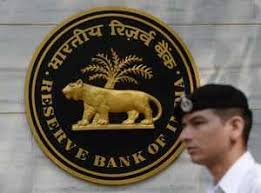RBI relaxes stressed bank assets guidelines

The Reserve Bank of India diluted its earlier guidelines on stressed assets and has now mandated banks to undertake a review of a borrower account within 30 days of default, according to a fresh circular issued on Friday.
The previous circular, issued on Feb. 12 last year, required banks to initiate a resolution process as soon as a default took place.
The circular was struck down by the Supreme Court of India in April after several companies challenged the guidelines in court arguing the time given by the regulator was insufficient to tackle bad debt issues.
Some had challenged the validity of the RBI’s directive saying its “one-size-fits-all” did not account for external factors.
The RBI in the fresh circular said lenders should work on a resolution plan based on the financial health of borrowers even before a default. In the case of a default by a borrower with even a single lender, all lenders should review the borrower’s accounts within 30 days.
The lenders are expected to devise a resolution plan within this 30-day period and also enter into an Inter-Creditor Agreement during this period.
The resolution plan should be implemented by the lenders within 180 days after the initial review period, the central bank said.
“The new circular is more pragmatic,” said Rupa Rege Nitsure, chief economist at L&T Financial Holdings.
“This is more reasonable as defaults could happen due to unpredictable events and things generally don’t change within just one day. On balance, the new circular appears to be more practical without diluting the “spirit” of the earlier circular”.
The central bank said now approval of lenders representing 75% of outstanding loans and 60% of number of lenders would be required for the sake of resolution, versus 100% earlier which is expected to speed up the process, Nitsure said.
However, in case of delays in implementing a resolution plan, the RBI has instituted additional provisioning norms.
Failure to implement the resolution plan within 180 days of the end of the review period will require banks to make additional provisioning of 20% while banks would need to set aside an additional 15% on top of this after a 365 day period.







